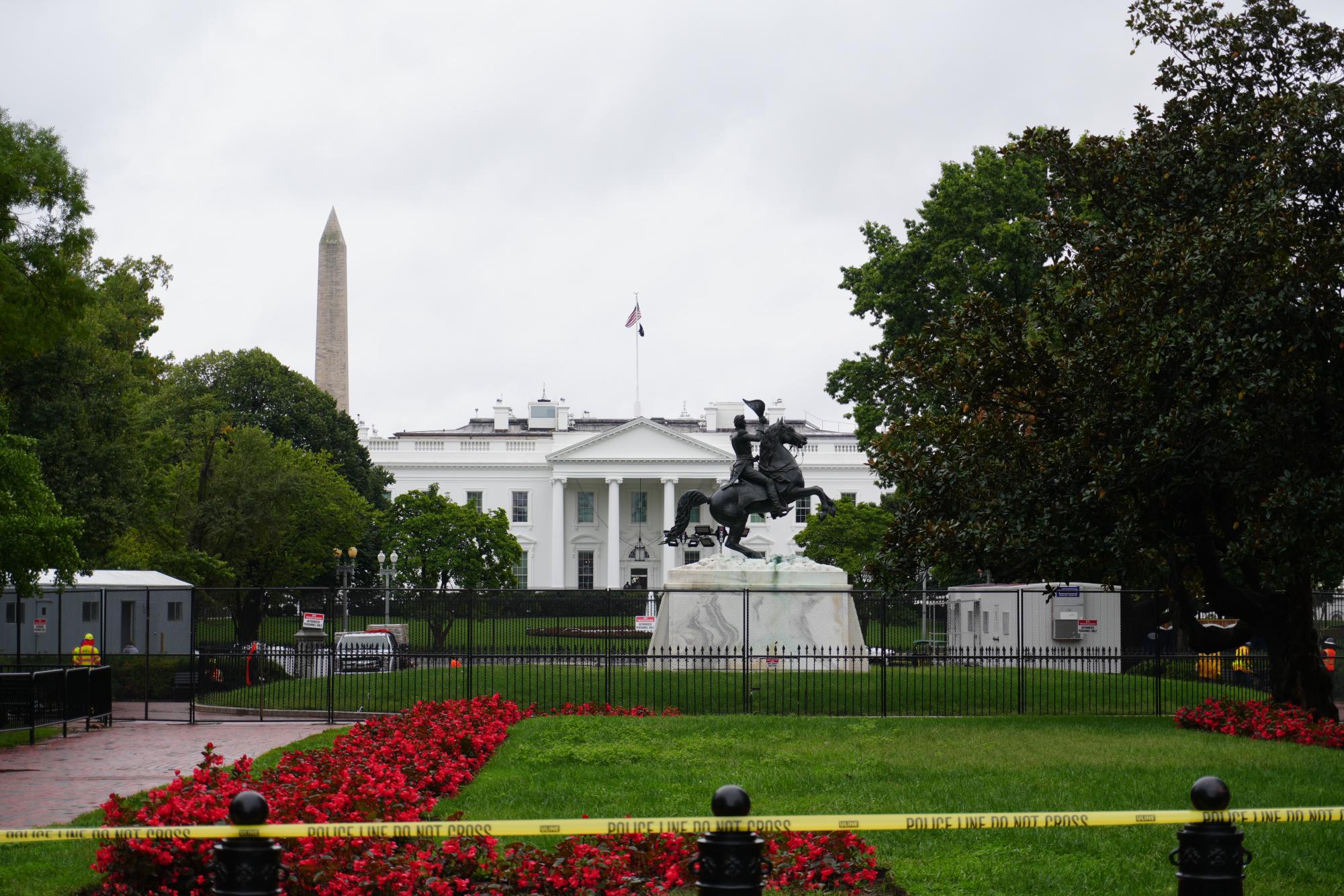
“I would never feel comfortable [dating] someone who has those views,” said a senior girl, speaking about supporters of Donald Trump, who was sworn in as the 47th President of the United States earlier today. “It just shows a lot about their character.”
The senior was responding to a survey from The Classic that focused, in part, on dating and politics. She was one of many who shared similar views.
Since November, coverage of the election and its results has frequently focused on young male voters, who played an important role in Donald Trump’s victory. Though Trump did fare better with young women voters compared to 2020, a wide gender gap still appeared in the results: nearly two thirds of young male voters went for Trump and nearly two thirds of young female voters went for Kamala Harris. Though few high school students are old enough to vote, The Classic’s survey sought to contextualize how this gender gap seeps into areas beyond just voting choices.
The survey sampled ten percent of students, selected at random (about 40 students per grade), and found that, out of the pool of students who said they would have voted if eligible, 70% of them would have voted for Kamala Harris and 25% would have voted for Donald Trump. When asked about how their voting preferences impact their social lives, 79% of Harris potential voters said that they would never date someone who is a Trump supporter. When asked the same question about Harris voters, 55% of potential Trump voters said that they would consider dating a Harris supporter.
It should be noted that there is already a significant gender gap in the population of THHS: young women have historically made up around sixty percent (or more) of the student body. In the survey, potential Harris voters were far more likely to be female and potential Trump voters were more likely to be male (relative to their makeup of the overall student body).
When asked if they would begin friendships with supporters of the opposing candidate, the results suggested that political views were less likely to impact potential friendships, though Harris supporters were still less likely to want to even begin a friendship with a Trump supporter. The results showed that 60% of Harris voters would be willing to befriend a Trump supporter and 35% would not be willing. On the other hand, 75% of Trump supporters would be willing to befriend a Harris supporter and 21% would not.
When interviewing Harris supporters, the issue of dating people who support the MAGA movement resulted in the strongest responses.
Senior Aneesa Ahmed, who identified as a potential Harris voter, said that she wouldn’t be romantically interested in someone who voted for Trump.
“I do not want to form a deeper connection with someone who will excuse Trump for his wrongdoings,” she said. “While many voted for Trump for various reasons, I cannot ignore that many of his policies and morals make me feel unsafe as a woman who is also part of other minority groups.”
Senior Tristin Hall, who portrayed Kamala Harris in the THHS election simulation, shared similar thoughts. “For someone to support Trump, acknowledging how he constantly disrespects women and upholds white supremacy — there’s no way that person also respects me and has my best interests at heart. It’s too contradictory.”
It proved difficult to find a potential Trump supporter from the student body willing to share their thoughts on the record about this subject.
Senior Jahel Valois Valderuten said that he identifies as a conservative, but would be part of the 14% of students who would have chosen not to vote in the election. Jahel said that he believed both Trump and Harris were “bad options” and would have much preferred it if JD Vance had been the Republican nominee. Regarding the social impacts of politics in high school relationships, he said he believes that politics should not be at the forefront of relationships.
“I really don’t care [about who they voted for] as long as we keep politics out of the picture,” he said.
Senior Vivian Oksenhendler said that following the election, she unfollowed mutual friends on Instagram who were following Donald Trump’s account. “I want to surround myself with people who are politically aligned with me on humanitarian issues. I personally could not be close with anyone who supported Trump and his ideals,” she said.
AP Government and Politics teacher Charlene Levi commented on the divergence in voting habits by gender amongst young Americans. She said, “The predominance of male Trump voters could stem from cultural factors and targeted messaging by the Republican campaign that resonated more with younger males. These strategies may include appeals to economic stability, freedom of expression, or values that align closely with their experiences. In contrast, outreach to women might focus on different social issues and community-oriented messaging.”
Throughout the election cycle, the Trump campaign scheduled appearances on various male-dominated media outlets such as the Joe Rogan podcast and popular streamer Adin Ross’s Twitch channel. Additionally, some young men indicated it’s not only the Trump campaign’s messaging that resonated with them; they said they also felt turned off by messaging from the left (such as discussions of concepts like “toxic masculinity”).
In a New York Times guest essay, Naomi Beinart, a high school junior, described the days after the election within her high school community, focusing on the differences between how male and female students were responding to the results. She wrote that many of her male peers “appear[ed] nonchalant” while her female peers were seen crying or wearing faces of “defeat.”
“In a terrible way, I’ve never felt more part of a sisterhood or more certain that pain is shared within that family,” she wrote. “I wish the consequences of this moment for young women punctured the apparent indifference of so many men and boys I saw that day. I wish they could breathe in what the women and girls I know have been inhaling since Nov. 5.”
When asked about her reaction to the election, Tristin said that she is full of concerns for what will happen as Trump takes office. “As a senior in high school, I’ll soon have to experience and see all the consequences in the real world,” she said
On the other hand, Jahel said that he was looking forward to Trump “fixing” the current border and immigration crisis, as well as him “ending” the Russia and Ukrainian war “in 24 hours” (as he pledged to during a CNN town hall held in May 2023).
Despite the polarization reflected between young Harris and Trump supporters both nationally and within THHS, Ms. Levi said that the voting trends in young generations “could encourage future leaders to engage more with this demographic, fostering discussions around the issues that matter most to them.”
In order for this to happen, she said that Generation Z needs to actively show their political interest. “If Gen Z doesn’t show up to the polls with the numbers that show up representing Boomers and Gen X, then the incentive for politicians to change their proven methods won’t change.”




